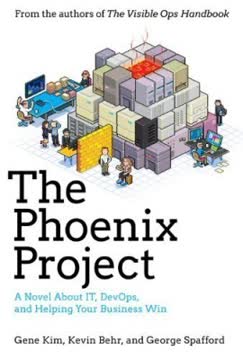Key Takeaways
1. Management is a distinct practice essential for organizational success
Management is the specific and distinguishing organ of any and all organizations.
Management as a discipline. Management emerged as a distinct practice in the early 20th century, focusing on making human resources productive. It involves planning, organizing, integrating, measuring, and developing people to achieve organizational goals. Unlike other professions, management is not defined by a specific skill set but by its ability to coordinate diverse resources and knowledge to create results.
Key functions of management:
- Setting objectives and determining strategies
- Organizing work and allocating resources
- Motivating and communicating with employees
- Establishing performance standards and measuring results
- Developing people and fostering innovation
Management is essential for all organizations, whether businesses, non-profits, or government agencies. Effective management transforms individual efforts into collective achievements, enabling organizations to survive and thrive in competitive environments.
2. The purpose of a business is to create and satisfy customers
Because its purpose is to create a customer, the business enterprise has two—and only these two—basic functions: marketing and innovation.
Customer-centric approach. The primary goal of any business is not merely to make a profit but to create and retain customers. This customer-focused perspective shifts the emphasis from internal processes to external value creation. Businesses must continually ask themselves: "What does the customer value?" and "How can we better serve their needs?"
Marketing and innovation as core functions:
- Marketing: Understanding and fulfilling customer needs
- Innovation: Creating new products, services, or processes that add value
Successful businesses align their entire operations around customer satisfaction. This involves not just the sales and marketing departments but every aspect of the organization. By focusing on creating value for customers, businesses can establish a sustainable competitive advantage and ensure long-term profitability.
3. Innovation and entrepreneurship are crucial for business growth
To be sure, innovation is not the only thing that matters in business, but it represents a crucial dimension of business activity in a competitive economy where firms must continually strive to improve their position relative to rivals.
Driving forces of growth. Innovation and entrepreneurship are not just buzzwords but essential practices for business survival and growth. In a rapidly changing economic landscape, companies that fail to innovate risk becoming obsolete. Entrepreneurship, both within existing organizations and in new ventures, is the engine that drives economic progress.
Key aspects of innovation and entrepreneurship:
- Identifying new market opportunities
- Developing new products, services, or business models
- Improving existing processes and systems
- Fostering a culture of creativity and risk-taking
- Adapting to technological and societal changes
Organizations must create structures and processes that encourage innovation at all levels. This includes allocating resources for research and development, rewarding creative thinking, and being willing to take calculated risks on new ideas.
4. Knowledge workers are the key asset in modern organizations
In a knowledge society, the most probable assumption for an organization to make is that it needs the knowledge worker far more than the knowledge worker needs the organization.
Shift in workforce dynamics. The rise of the knowledge economy has transformed the nature of work and the relationship between employers and employees. Knowledge workers, who apply theoretical and analytical knowledge to develop products and services, have become the most valuable asset in many organizations.
Characteristics of knowledge work:
- Requires specialized education and continuous learning
- Focuses on creating, interpreting, and applying information
- Often involves non-routine problem-solving
- Demands autonomy and self-management
Managing knowledge workers effectively requires a different approach than traditional management methods. Organizations must provide an environment that fosters creativity, offers opportunities for growth, and recognizes the value of intellectual capital. This shift necessitates a move from command-and-control leadership to more collaborative and empowering management styles.
5. Effective management requires clear objectives and self-control
Management by objectives tells a manager what he ought to do. The proper organization of his job enables him to do it. But it is the spirit of performance that makes him want to do it.
Goal-oriented management. Management by objectives (MBO) is a system where managers and employees work together to set, record, and monitor goals for a specific period. This approach aligns individual efforts with organizational objectives, promoting clarity and focus.
Key elements of MBO:
- Setting specific, measurable, achievable, relevant, and time-bound (SMART) goals
- Regular review and feedback on progress
- Emphasis on results rather than activities
- Encouraging self-control and initiative
Self-control is a crucial aspect of MBO. It empowers employees to take responsibility for their work and make decisions within their area of expertise. This approach fosters a sense of ownership and motivation, leading to higher performance and job satisfaction.
6. Managers must balance multiple responsibilities and stakeholder interests
The manager has to be a craftsman, technician, and professional all at once. He needs skill as well as knowledge. He has to be willing and able to tackle the daily chore as well as to think through basic decisions and relationship.
Multifaceted role of managers. Modern managers must wear many hats, balancing operational tasks with strategic thinking, and technical expertise with people skills. They are responsible for achieving organizational goals while also considering the interests of various stakeholders, including employees, customers, shareholders, and the community.
Key responsibilities of managers:
- Setting and achieving performance goals
- Developing and motivating team members
- Making strategic decisions
- Managing resources effectively
- Communicating with various stakeholders
- Adapting to changing business environments
Effective managers must develop a broad skill set and maintain a holistic view of the organization. They need to balance short-term results with long-term sustainability, and financial performance with social responsibility.
7. Continuous learning and development are vital for managers and organizations
In a time of drastic change it is the learners who inherit the future. The learned usually find themselves equipped to live in a world that no longer exists.
Embracing lifelong learning. In a rapidly changing business environment, continuous learning and development are essential for both individual managers and organizations as a whole. The ability to acquire new knowledge and skills quickly has become a critical competitive advantage.
Approaches to continuous learning:
- Formal education and training programs
- On-the-job learning and experimentation
- Mentoring and coaching relationships
- Self-directed learning and reflection
- Cross-functional experiences and job rotations
Organizations should create a culture that values and supports continuous learning. This includes providing resources for employee development, encouraging knowledge sharing, and rewarding innovation and adaptability. Managers, in particular, must model a commitment to lifelong learning and foster an environment where experimentation and even failure are seen as opportunities for growth.
8. Social responsibility is an integral part of management
Every one of our institutions today exists to contribute outside of itself, to supply and satisfy nonmembers. Business exists to supply goods and services to customers, not to supply jobs to workers and managers or even dividends to shareholders.
Balancing profit and purpose. Social responsibility has become an integral part of management in the modern era. Organizations are increasingly expected to consider their impact on society and the environment, beyond just their financial bottom line. This shift reflects a growing understanding that long-term business success is intertwined with the well-being of the communities and ecosystems in which they operate.
Key aspects of social responsibility:
- Ethical business practices
- Environmental sustainability
- Community engagement and philanthropy
- Transparency and accountability
- Fair labor practices and diversity
- Responsible supply chain management
Managers must integrate social responsibility into their strategic decision-making processes. This involves not only mitigating negative impacts but also proactively seeking ways to create positive value for society. By aligning business objectives with societal needs, organizations can build stronger relationships with stakeholders and ensure their long-term viability.
9. Effective leadership involves empowering and developing others
The most important contribution a manager can make to the development of subordinates is to provide them with the opportunity to grow and to realize their full potential.
Empowering leadership. Effective leaders recognize that their success is intrinsically linked to the success of their team members. They focus on developing and empowering others, rather than simply directing or controlling them. This approach not only enhances individual performance but also builds organizational capacity and resilience.
Key aspects of empowering leadership:
- Delegating responsibility and authority
- Providing constructive feedback and recognition
- Offering challenging assignments and growth opportunities
- Encouraging innovation and risk-taking
- Fostering a culture of trust and open communication
- Mentoring and coaching team members
Leaders who empower others create a multiplier effect, enhancing the capabilities and performance of the entire organization. This approach is particularly crucial in knowledge-based organizations where employee engagement and creativity are vital for success.
10. Adapting to change is essential for long-term organizational success
The greatest danger in times of turbulence is not the turbulence; it is to act with yesterday's logic.
Embracing change. In today's fast-paced business environment, the ability to adapt to change is crucial for organizational survival and success. This requires not only reacting to external changes but also proactively anticipating and shaping future trends.
Strategies for adapting to change:
- Developing a flexible organizational structure
- Fostering a culture of innovation and experimentation
- Continuously monitoring the external environment
- Investing in emerging technologies and skills
- Building diverse and adaptable teams
- Developing scenario planning and risk management capabilities
Managers must lead their organizations through change by communicating a clear vision, managing resistance, and ensuring that the organization has the necessary resources and capabilities to adapt. This involves balancing the need for stability and continuity with the imperative for innovation and transformation.
Last updated:
FAQ
What’s Management: Tasks, Responsibilities, Practices about?
- Comprehensive Overview: The book provides a detailed exploration of management as a discipline, focusing on tasks, responsibilities, and practices that effective managers must adopt.
- Integration of Insights: It integrates Peter F. Drucker's insights from 1974 to 2005, updating original concepts to reflect the evolving landscape of management.
- Focus on Knowledge Workers: Emphasizes the importance of knowledge as the key resource in modern organizations, highlighting the shift from manual labor to knowledge work.
Why should I read Management: Tasks, Responsibilities, Practices?
- Timeless Principles: Offers foundational management principles that remain relevant across various industries and organizational types.
- Practical Application: Drucker’s insights are designed for real-world application, helping readers implement effective management strategies.
- Understanding Modern Challenges: Addresses contemporary management challenges, such as the rise of knowledge workers and rapid technological changes.
What are the key takeaways of Management: Tasks, Responsibilities, Practices?
- Core Responsibilities: Identifies three primary responsibilities of management: defining the institution's purpose, making work productive, and managing social impacts.
- Theory of the Business: Emphasizes the importance of a clear theory of the business, including understanding the market, mission, and core competencies.
- Focus on Results: Management should prioritize achieving results that benefit both the organization and society, beyond traditional profit maximization.
What is the Theory of the Business as defined by Peter F. Drucker?
- Definition and Importance: Refers to assumptions about the environment, mission, and core competencies guiding an organization’s strategy and operations.
- Adaptation to Change: Organizations must regularly test and update their theory to remain relevant and effective in a changing environment.
- Foundation for Decision Making: A valid theory helps align objectives with market realities, ensuring all management levels work towards common goals.
How does Peter F. Drucker define the purpose of a business?
- Creating a Customer: States, “The purpose of a business is to create a customer,” emphasizing satisfaction of customer needs and wants.
- Beyond Profit Maximization: Profit is necessary for survival but not the primary purpose; businesses exist to provide value to customers.
- Focus on Value: Businesses must understand what customers value and ensure their products and services meet those expectations.
What is the concept of "management by objectives" in Management: Tasks, Responsibilities, Practices?
- Goal Alignment: Involves managers and employees collaboratively setting clear, measurable goals to ensure alignment with organizational objectives.
- Performance Measurement: Emphasizes measuring performance against objectives, central to the MBO approach.
- Continuous Feedback: Involves regular feedback and adjustments, fostering a culture of accountability and continuous improvement.
How does Drucker suggest managers should approach decision-making?
- Present Focus: Managers should make decisions in the present while considering long-term implications, as expedient decisions may have lasting effects.
- Rational Choices: Decisions should be based on knowledge rather than intuition, ensuring alignment with organizational goals.
- Understanding Risks: Emphasizes understanding risks involved, stating that taking risks is essential to economic activity.
What role does feedback play in Drucker’s management philosophy?
- Systematic Measurement: Feedback is crucial for measuring decision results against expectations, allowing for adjustments and improvements.
- Self-Control Mechanism: Serves as a self-control mechanism for managers, enabling performance assessment and necessary changes.
- Continuous Improvement: Advocates for a culture of continuous improvement, using feedback to refine processes and enhance effectiveness.
What are the five design principles for organizing activities in Management: Tasks, Responsibilities, Practices?
- Functional Structure: Groups activities based on functions, providing clarity but potentially leading to silos.
- Team Organization: Focuses on collaborative teams for specific projects, enhancing flexibility and responsiveness.
- Federal Decentralization: Organizes into semi-autonomous units, allowing adaptability and accountability.
- Simulated Decentralization: Mimics federal decentralization without true autonomy, potentially causing confusion.
- Systems Structure: Integrates various organizations and stakeholders, emphasizing relationships and collaboration.
How does Management: Tasks, Responsibilities, Practices address the role of knowledge workers?
- Central to Modern Organizations: Knowledge workers are the backbone, driving innovation and performance with specialized skills.
- Continuous Learning: Advocates for continuous learning and self-development among knowledge workers.
- Contribution to Results: Encourages knowledge workers to understand their contributions to organizational goals.
How does Drucker suggest organizations should manage social responsibilities?
- Social Impact Awareness: Organizations must recognize their societal role and the impact of their actions on the community and environment.
- Balancing Objectives: Social responsibilities should be integrated into objectives, ensuring positive contributions to society.
- Long-term Perspective: Businesses can thrive by considering social responsibilities, avoiding public backlash and loss of legitimacy.
What are the best quotes from Management: Tasks, Responsibilities, Practices and what do they mean?
- “The business enterprise is a system of the highest order.”: Highlights complexity and interdependence within organizations, emphasizing holistic improvement.
- “Management exists for the sake of the institution’s results.”: Focuses on achieving meaningful outcomes for the organization and stakeholders.
- “The purpose of a business is to create a customer.”: Reminds managers that customer satisfaction is the ultimate goal of any enterprise.
Review Summary
Management rev ed by Peter Drucker is widely praised as a comprehensive and insightful guide to management principles. Readers appreciate its depth, timeless wisdom, and practical advice for managers at all levels. Many consider it essential reading for anyone in a leadership role. The book covers a wide range of topics, from defining business purpose to improving productivity. While some find it dense and theoretical, most reviewers agree that its teachings remain relevant and valuable in today's business world.
Similar Books










Download PDF
Download EPUB
.epub digital book format is ideal for reading ebooks on phones, tablets, and e-readers.













